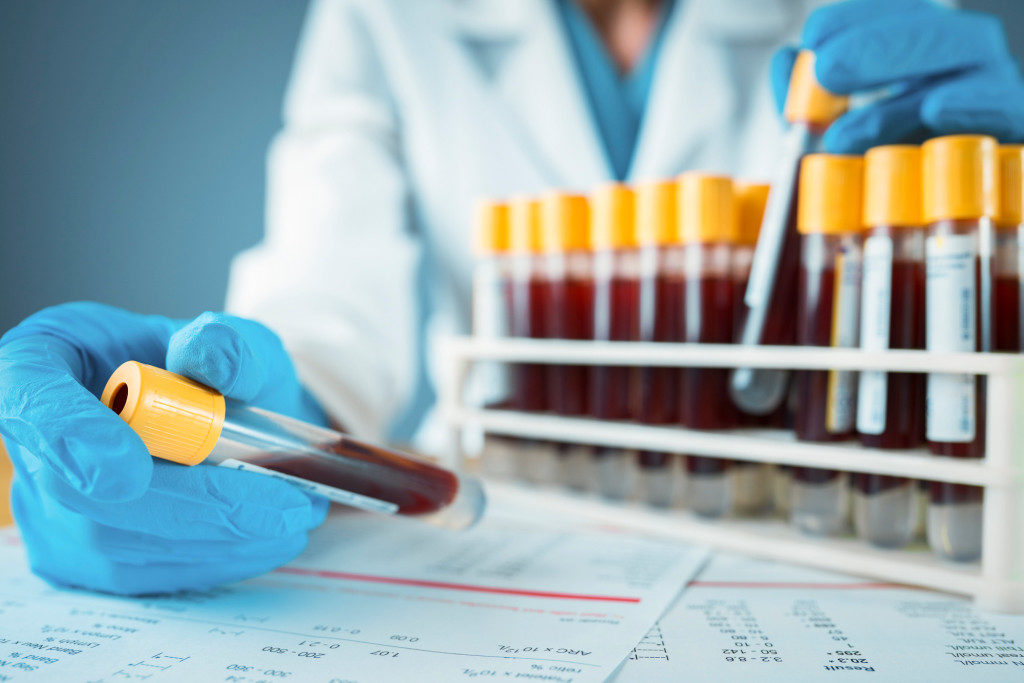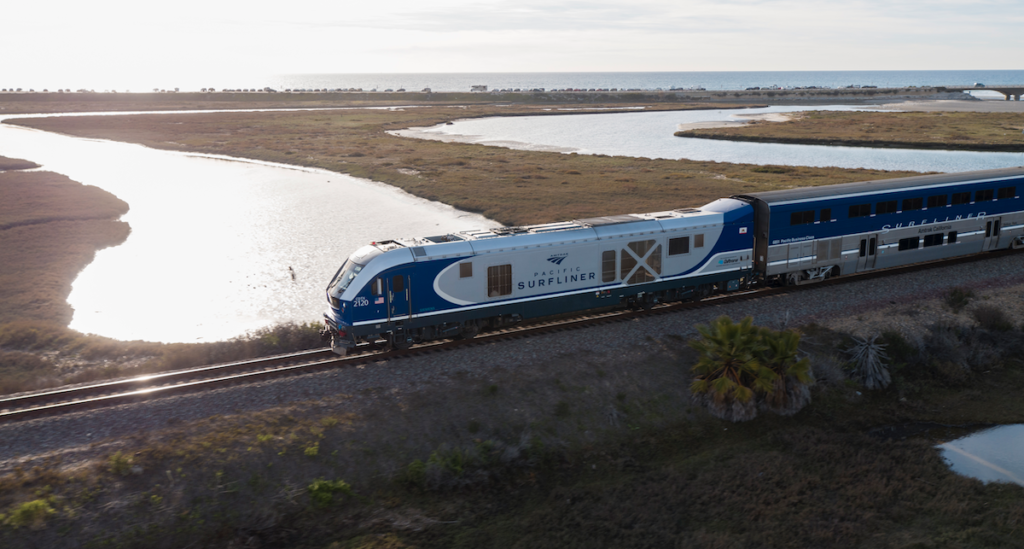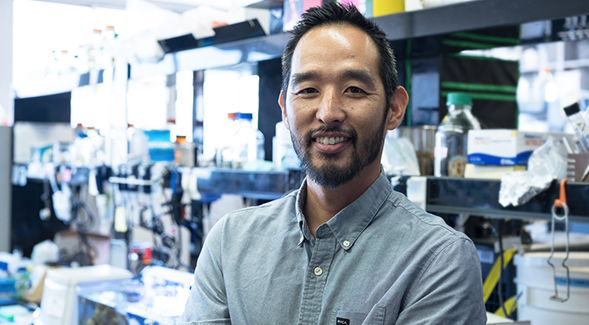Daily Business Report-April 23, 2020
Illustration by Visual Capitalist
How oil prices went subzero:
Explaining the COVID-19 oil crash
On Monday, oil prices went negative for the first time in history.
While it’s unlikely you’ll be paid to take gas from the pump in the near future, this does give an indication of how out of whack the oil market is.
Click here for an infographic on how this all happened.
____________________________
Board OKs $5 million loan program to help
small businesses in unincorporated area
The county Board of Supervisors voted unanimously Tuesday to approve a $5 million loan program to help small businesses in the unincorporated area that have suffered losses because of COVID-19. The program will be overseen by the San Diego Foundation.
The loans are intended to allow these businesses to stay afloat and recover quickly once the state’s stay-at-home health order is lifted.
Unincorporated area businesses that employ fewer than 50 people may qualify for the no- or low-interest loans. Applicants could request up to $50,000 and pay no more than 2 percent interest for a term of up to two years. Businesses that can retain and create jobs will have priority.
The board action allows staff to set up an agreement with the San Diego Foundation to distribute the funds. The Foundation will ensure the loans are covered by the State of California Small Business Loan Guarantee Program or a comparable program.
Loans paid off within 60 months are returned to the county as well as 95 percent of any defaulted loans.
Applications for the loans could begin as soon as next month.
____________________________

COVID-19 immunity tests
in short supply; accuracy a concern
by Emily Hoeven | CalMatters
As calls mount for life to return to normal, a test to see who has immunity to COVID-19 holds the key to reopening California’s economy. But there are hurdles: Competition to procure limited tests is ramping up, even as the tests’ accuracy remains contested, the Los Angeles Times reports.
Unlike diagnostic tests, blood-based, or serology, tests don’t determine if you have the virus. They gauge if you have developed antibodies, or an immune response, to the virus. But questions remain.
How reliable are the tests? Nearly 100 types of serology tests have entered the U.S. market due to a loosening in federal regulations. Not all are accurate. “We … have been receiving some of these kits, and we decided to test them to see how well they worked. And some of them weren’t very good,” said Yvonne Maldonado, a Stanford infectious-disease expert.
What do antibodies mean? Even if reliable tests show someone has antibodies, that doesn’t guarantee current or long-term immunity. And researchers still don’t know if you can contract the virus more than once.
Meanwhile, components needed to expand diagnostic testing for the virus — the first step to reopen California’s economy — are in short supply, Gov. Gavin Newsom said Tuesday.
Newsom: The Trump administration “knows this. We need more of those supplies, but we’re not just going to sit on our hands in the absence of that. … And so we’ll continue to search high and low and continue to make progress in this space.”
____________________________

State awards $38.7 million to agency
to enhance Pacific Surfliner service
The Los Angeles – San Diego – San Luis Obispo (LOSSAN) Rail Corridor Agency, which oversees the Amtrak Pacific Surfliner service, was awarded $38.7 million to fund a package of projects that will expand and improve passenger rail service in Southern California, the California State Transportation Agency (CalSTA) announced.
The $38.7 million grant includes funding to construct a Central Coast Layover Facility in San Luis Obispo, to design and construct a new maintenance and layover facility in San Diego that will allow overnight storage and servicing of Pacific Surfliner equipment to be relocated from the Santa Fe Depot to a new location in National City, and also to help overhaul and modernize the Pacific Surfliner railcars.
“This investment by the state will allow for additional rail service along the entire corridor and help to encourage ridership growth by providing new facilities in both San Luis Obispo and San Diego where we can more effectively manage Pacific Surfliner equipment and operations,” added LOSSAN Agency Managing Director Donna DeMartino.
____________________________

Marine microbiologist receives major
NSF career development award
by Padma Nagappan | SDSU
When he first began studying tiny tubeworms which cause barnacle build-up on the bottom of boats, Nicholas Shikuma didn’t know his research would lead to where he is today—or to a career award from the National Science Foundation (NSF) for talented faculty.
The assistant professor of biology at San Diego State University has made several key discoveries that expanded our knowledge of how certain bacteria cause metamorphosis in marine animals like the tubeworm, which enables them to establish colonies.
Shikuma’s research interests the U.S. Navy, since biofouling—when crusty barnacles stuck to the bottom of boats increase weight and fuel consumption—causes economic loss due to higher fuel costs. The Office of Naval Research funds this ongoing research.
As he continued to study one particular beneficial bacterium, Pseudoalteromonas luteoviolacea, Shikuma discovered it has a syringe-like structure that injects a novel protein in the marine host to cause metamorphosis. This finding has implications for human health, since the same process may take place in our gut microbiome.
It led to another milestone for Shikuma: an NSF CAREER award of $999,600 spread over five years, awarded to promising early career faculty to further advance their research.
____________________________
MiraCosta College paid internships to grow
through new Dept. of Education program
MiraCosta College students will see an expanded offering of paid, off-campus internship opportunities through a new Federal Work Study (FWS) experiment that could launch as early as this fall.
MiraCosta has partnerships with a large number of area businesses that can offer critical work experience for students, but current rules limit opportunities in formal work-study programs to part-time employment and most current internships are unpaid.
Under the FSW experiment, MiraCosta College students can enroll in paid internships—funded through the FWS program—as long as the job is related to their academic program.
The FWS experiment is aimed at increasing partnerships between colleges and industry, boosting student success rates, reducing student debt and increasing post-graduation employment options.
MiraCosta College officials say many details are still being worked out but are encouraged by the possibilities.
____________________________
Point-of-sale lender QuadPay agrees to cease
illegal loans, pay refunds in settlement with state
The California Department of Business Oversight (DBO) announced a settlement with point-of-sale lender QuadPay in which the company agreed to stop making illegal loans, refund more than $685,000 to California consumers and pay almost $69,000 in penalties.
The refunds represent all the fees QuadPay has collected from more than 45,000 Californians in so-called “buy now, pay later” transactions that the DBO concluded were illegal loans. Consumers who believe they may be entitled to a refund should call QuadPay at 1-888-748-0185.
The settlement is the third in a series of similar DBO enforcement actions involving point-of-sale lenders that will deliver nearly $1.9 million in refunds to California consumers.
After an inquiry launched last year, the DBO concluded QuadPay had engaged in the business of a finance lender without obtaining a required license. Under the settlement, QuadPay will only make future loans or extensions of credit to California residents under a California Financing Law (CFL) license.
Like other point-of-sale financers, QuadPay targets young consumers who are unable to qualify for traditional financing options like credit cards. Consumers pay QuadPay a percentage of the purchase price at the time of the purchase and the remainder in three equal installments. Merchants pay QuadPay a cut of each transaction and consumers pay QuadPay late fees if they miss a payment.
The DBO reached similar settlements in January and March with two other point-of-sale lenders, Sezzle and Afterpay. Sezzle agreed to pay more than $300,000 in refunds and penalties. Afterpay agreed to pay $900,000 in refunds and $90,000 in administrative fees. In both cases, the DBO concluded purported credit sales made by the lenders’ merchant partners were not bona fide but, rather, were structured to evade otherwise applicable consumer protections.
____________________________
Immunotherapy Foundation launches COVID-19
relief project for cancer patients, caregivers
The Immunotherapy Foundation (IF), a San Diego-based non-profit organization working to eradicate HPV-driven cancers by funding research and prevention programs, is launching Help Our Cancer Heroes, a COVID-19 relief project.
In honor of cancer patients and cancer caregivers at UC San Diego Moores Cancer Center (MCC), IF will work to deliver the resources frontline health care workers need to stay healthy and safe as they deliver care to cancer patients. The Help Our Cancer Heroes project has two main goals: (1) deliver 500 meals to health care workers during April and May 2020, and (2) secure and deliver much-needed personal protective equipment (PPE) equipment.
IF has pledged to deliver or provide 500 meals in honor of the staff of Moores Cancer Center who continue to provide essential services to cancer patients. These meals will include pre-packaged catered meals, gift cards to local San Diego restaurants, or healthy, nutritious snacks. In addition, IF will provide hospital-approved PPE, including face masks, shoe coverings, or gowns for healthcare workers so that they can safely treat their patients. All funds raised for this project will be used solely for the purpose of providing emergency protective gear and food resources in honor of the staff at Moores Cancer Center.
How the community can support the campaign:
Please consider a gift to support the Help Our Cancer Heroes Project. A dedicated GoFundMe page has been created as the landing page for this campaign.
Share and re-share related posts on social media to raise awareness for the Help Our Cancer Heroes project.
____________________________

Remote Working is the Future of Work
by Kelly Festa and Ellie Begum
The concept of remote working or telecommuting is no passing trend. In fact, it’s been around for decades. Physicist Jack Niles coined the term “telecommuting” in the 1970s when he was remotely developing a complex communications system for NASA. Niles went on to write the book on The Telecommunications-Transportation Tradeoff, a timely read at a time when the ’70s oil crisis was coming to a head —with obvious parallels to the crises of today. Later in the 1980s, IBM started experimenting with remote terminals in some of their employees’ homes. This decision laid the foundations for IBM’s seminal role in developing the remote work model, as by 2009, 40% of the company’s 386,000-strong staff had the option to work from home. A year later, the Telework Enhancement Act was passed by the government, realizing the value of making remote work a secure and viable option for federal workers as well.
Today, an estimated 5 million Americans make up the remote workforce. This represents a growth of around 91% over the last decade. Much of this is due to the fact that whatever your job is or whichever industry you come from, there are a number of remote working options that can fit your needs and requirements. This access to greater work flexibility is a big part of why remote work is becoming more popular around the world.
A Thriving Work Model
During the last decade, remote work has evolved to the point where people no longer just work at home, but also travel to different places like cafés, coworking spaces, and even different countries. Right here at home, San Diego County saw a 25% increase in the number of coworking spaces that sprang up in the area just last year. From 1.2 million square feet of dedicated coworking spaces in 2018, to 1.5 million square feet in June of 2019, this new and remote workspace model is becoming part and parcel of the county’s business ecosystem. This comes as no surprise, as Industrious notes that coworking spaces are equipped with premium amenities along with flexible memberships that suit remote workers. These include private offices, fully equipped meeting rooms, and special member only events for networking. Not to mention, coworking spaces are often thoughtfully designed for anyone ranging from business owners and coffee shop frequenters, to entrepreneurs.
The Bright Future of Remote Working
If you can do your job on a laptop with an Internet connection, there’s bound to be a remote working option that can cater to your needs, especially considering the rapid innovation in the industry today. One company called Selina is subverting the coworking space model and attracting digital nomads who want to combine travel and work. Through contracts with companies looking to tap the increasing pool of skilled digital nomads, Selina provides flexible global travel opportunities alongside traditional office work, all while ensuring that their coworking spaces in hip locations around the world are supplied with everything working nomads need to thrive.
Similarly, We Heart Magazine details how an emerging Asian trend combines coworking spaces with coliving residences. In this case, dedicated coworking spaces cater to digital nomads to encourage collaboration and business-to-business partnerships. As these remote working models continue to innovate and develop, it will become easier for everyone from solo freelancers to big companies to reap the benefits of tech-based flexibility, an increasingly crucial factor in the ever-changing global business landscape.
There is always something happening in San Diego, whether it be business or lifestyle related. Follow us to keep up with the latest news.


